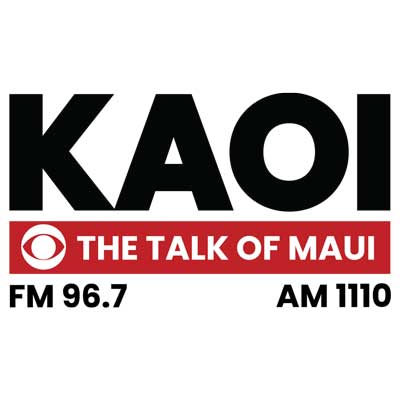British Prime Minister Keir Starmer called on European nations to “step up” to help secure a lasting peace in Ukraine, committing for the first time to deploying British soldiers to the country to support any deal agreed with Russia.
“We are facing a once-in-a-generation moment for the collective security of our continent,” Starmer wrote in an op-ed for The Telegraph published on Sunday. “This is not only a question about the future of Ukraine — it is existential for Europe as a whole.”
“The U.K. is ready to play a leading role in accelerating work on security guarantees for Ukraine,” the prime minister wrote, noting the country’s commitment to spending nearly $4 billion to support Kyiv’s forces until at least 2030.
“But it also means being ready and willing to contribute to security guarantees to Ukraine by putting our own troops on the ground if necessary,” Starmer continued.
“I do not say that lightly,” he added. “I feel very deeply the responsibility that comes with potentially putting British servicemen and women in harm’s way. But any role in helping to guarantee Ukraine’s security is helping to guarantee the security of our continent and the security of this country.”
Starmer’s commitment makes him one of few NATO leaders to have suggested putting allied boots on the ground inside Ukraine to support any future peace deal. French President Emmanuel Macron has previously been at the forefront of such proposals, with Baltic states including Estonia and Lithuania also among those expressing willingness.
Ukrainian President Volodymyr Zelenskyy has consistently concrete security guarantees from Western partners are a vital part of any peace deal with Russia, and a necessary deterrent of renewed aggression from Moscow. Allies have been cool on — or outright opposed to — Ukraine’s ambition for rapid NATO accession and subsequent protection under the bloc’s Article 5 collective defense clause.
The offer of British troops comes after a turbulent week in NATO-Ukraine relations, with President Donald Trump unilaterally announcing the beginning of direct peace talks with Russian President Vladimir Putin and his top officials making clear the limits of U.S. backing for Kyiv.
In the run up to last weekend’s Munich Security Conference in southern Germany, Defense Secretary Pete Hegseth said Ukraine will not be offered NATO membership in the near future, that Kyiv will not be able to liberate all occupied territory and that American troops will not be sent to the country as part of any peace deal.
Hegseth and Vice President JD Vance also hit out at European allies for doing too little to support Ukraine, contain Russia and bolster their own military readiness. The continent must “step up in a big way,” Vance said, while also rattling European allies by claiming they have failed to address issues of migration and free speech.
Meanwhile, the Trump administration has continued its push for a deal with Ukraine to secure access to some $500 billion worth of rare earth metals. Zelenskyy refused to approve a draft of the agreement this weekend, telling the Associated Press that the deal “is not ready to protect us, our interest.”
Secretary of State Marco Rubio flew to Saudi Arabia on Monday — where he will be joined by National Security Adviser Mike Waltz and Middle East envoy Steve Witkoff — for the expected beginning of talks with top Russian officials.
In a Sunday interview with Fox News, Witkoff said the U.S. delegation will “be having meetings at the direction of the president. And, hopefully, we’ll make some really good progress with regard to Russia-Ukraine.”
Pushed on whether Kyiv will be pressured into specific concessions, Witkoff responded, “I’m not dismissive of the details. They’re important. But I think the beginning here is trust-building.”
“It’s getting everything to understand that this war does not continue, that it should end,” he added. “That’s what the president has directed us to do, to negotiate a proper ending of this war. No more death.”
The mission to Riyadh comes days after Trump said he spoke with Putin over the phone about starting negotiations, adding he expected an eventual in-person meeting with the Russian leader in Saudi Arabia.
It remains unclear whether Ukraine will be involved in the negotiations. Kyiv and its European allies have urged the White House to facilitate roles for Ukrainian and European leaders in the talks.
Zelenskyy, meanwhile, flew to the neighboring United Arab Emirates for an official visit. The nation has played a prominent role in Kyiv-Moscow prisoner exchange talks during the war.
“Our top priority is bringing even more of our people home from captivity,” Zelenskyy wrote on social media. “We will also focus on investments and economic partnership, as well as a large-scale humanitarian program.”
The president’s office told ABC News that Zelenskyy will travel to Saudi Arabia on Tuesday for a pre-planned bilateral visit.
Zelenskyy told NBC News on Sunday that his nation will “never accept any decisions between the United States and Russia” made regarding Ukraine’s future without Kyiv’s participation.
Fierce fighting and long-long attacks continue as Kyiv and Moscow prepare for the revival of talks. On Sunday night, Ukraine’s air force said Russia launched 147 drones into the country, 83 of which were downed and 59 jammed.
Russia’s Defense Ministry, meanwhile, said it shot down 90 Ukrainian drones.
ABC News’ Will Gretsky and Selina Wang contributed to this report.
Copyright © 2025, ABC Audio. All rights reserved.















